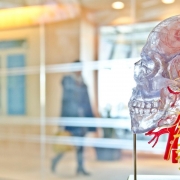Artificial intelligence is the creation of intelligent machines which are trained to work and react like humans. This field is highly technical and specialised. However, many believe that the UK has lost diversity in this area.
Previously, I had understood what AI entailed and was aware that it was subject to bias. However, what I did not anticipate was the extent that human bias when programming AI would affect the system.
The public is asking for the government and tech companies to improve inclusivity in the application of artificial intelligence. Censuswide found UK citizens feel AI requires human intervention. Therefore, government and the tech industry should address issues inherent in AI application, such as gender diversity.
32% of respondents argued that driving gender diversity was the responsibility of the tech industry. However, a similar proportion of 31% said that responsibility fell to the government.
Elif Tutuk, senior director of research at Qlik commented “For the artificial intelligence industry to grow and flourish, it needs trust at its core. Trust is shaped by human experiences, and we need greater attention paid to the many different human experiences that can create more balanced AI for all.”
Therefore, she argues that more emphasis needs to be placed on the data behind AI and who is programming it. Artificial intelligence, as a machine, is prone to bias and a lack of context. Therefore, it makes sense that this is important.
Tutuk emphasises the need for greater diversity in the workforce and in training of handling data to create a more level playing field during this growth of artificial intelligence.
What is being done?
Earlier this year as part of a plan to upscale the UK workforce under the AI Sector Deal, the government invested £13.5 million of the total funding towards scholarships and artificial intelligence and data science conversion courses. This is all to make the UK a leader in AI technology. The programmes were aimed to support professionals who took a career break and under-represented groups in the digital workforce. This includes women and those from minority ethnic and lower-economic backgrounds.
Wendy Hall during London Tech Week stressed that the field is not diverse in gender which influences the bias issues of artificial intelligence. Therefore, if there is a limited subsection of society creating the algorithms this is not a positive for society, she says. Hall recommends this absolutely needs to be a part of the ethical framework.
Diversity needs to be high on the agenda when regulating artificial intelligence. Additionally, Hall mentions that companies must take a diverse approach and have an interdisciplinary team. Ultimately, businesses need to have a diverse point of view.
Yet, work is being done to combat this issue. Oxford University has accepted a £150 million from Stephen Schwarzman to build a new humanities hub that will include a centre for artificial intelligence ethics research.
In a previous blog I also mentioned London Mayor Sadiq Khan’s opinion at London Tech Week that the government were not doing enough for AI readiness. This certainly seems to be the case in terms of diversity also.








Leave a Reply
Want to join the discussion?Feel free to contribute!